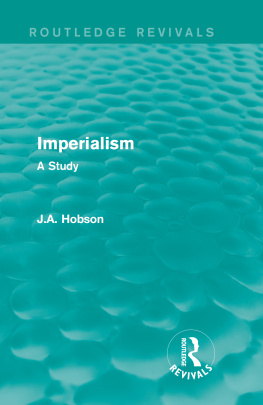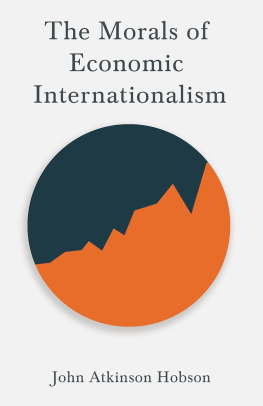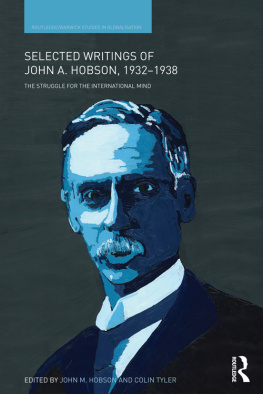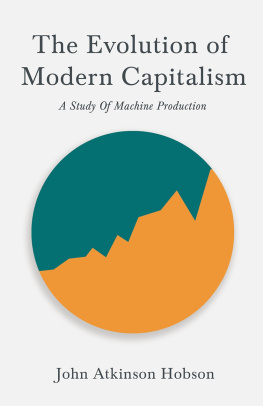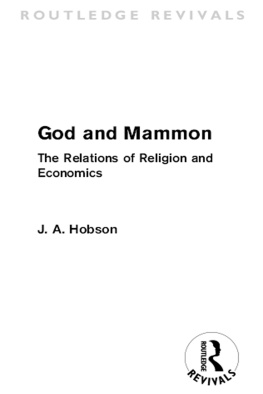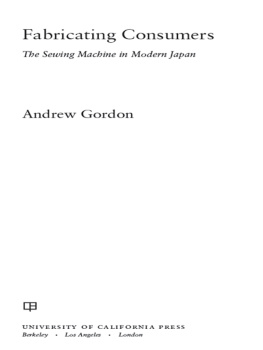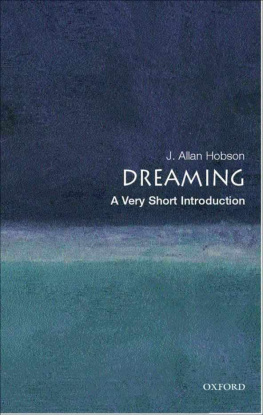PREFACE.
Table of Contents
In seeking to express and illustrate some of the laws of the structural changes in modern industry, I have chosen a focus of study between the wider philosophic survey of treatises on Social Evolution and the special studies of modern machine-industry contained in such works as Babbage's Economy of Manufactures and Ure's Philosophy of Manufactures, or more recently in Professor Schulze-Gaevernitz's careful study of the cotton industry. By using the term "evolution" I have designed to mark the study as one of a subject-matter in process of organic change, and I have sought to trace in it some of those large movements which are characteristic of all natural growth.
The sub-title, A Study of Machine-Production, indicates a further narrowing of the investigation. Selecting the operation of modern machinery and motors for special attention, I have sought to enforce a clearer recognition of organic unity, by dwelling upon the more material aspects of industrial change which mark off the last century and a half from all former industrial epochs. The position of central importance thus assigned to machinery as a factor in industrial evolution may beto some extent must bedeceptive, but in bringing scientific analysis to bear upon phenomena so complex and so imperfectly explored, it is essential to select some single clearly appreciable standpoint, even at the risk of failing to present the full complexity of forces in their just but bewildering interaction.
In tracing through the Business, the Trade, and the Industrial Organism the chief structural and functional changes which accompany machine-development, I have not attempted to follow out the numerous branches of social investigation which diverge from the main line of inquiry. Two studies, however, of "the competitive system" in its modern working are presented; one examining the process of restriction, by which competition of capitals gives way to different forms of combination; the other tracing in periodic Trade Depressions the natural outcome of unrestricted competition in private capitalist production.
In some final chapters I have sought to indicate the chief bearings of the changes of industrial structure upon a few of the deeper issues of social life, in particular upon the problem of the Industrial Town, and the position of woman as an industrial competitor.
A portion of Chapters VIII., IX., and X. have already appeared in the Contemporary Review and in the Political Science Quarterly Review, and I am indebted to the courtesy of the editors for permission to use them.
I have also to acknowledge most gratefully the valuable assistance rendered by Dr. William Smart of Glasgow University, who was kind enough to read through the proofs of a large portion of this book, and to make many serviceable corrections and suggestions.
JOHN A. HOBSON.
THE EVOLUTION OF MODERN CAPITALISM.
Table of Contents
THE EVOLUTION
OF MODERN CAPITALISM.
Table of Contents
CHAPTER I.
Table of Contents
INTRODUCTION.
1. Industrial Science, its Standpoint and Methods of Advance.
2. Capital as Factor in Modern Industrial Changes.
3. Place of Machinery in Evolution of Capitalism.
4. The Monetary Aspect of Industry.
5. The Literary Presentment of Organic Movement.
1. Science is ever becoming more and more historical in the sense that it becomes more studiously anxious to show that the laws or principles with whose exposition it is concerned not merely are rightly derived from observation of phenomena but cover the whole range of these phenomena in the explanation they afford. So likewise History is ever becoming more scientific in the sense that facts or phenomena are so ordered in their setting as to give prominence to the ideas or principles which appear to relate them and of which they are the outward expression. Thus the old sharp line, of distinction has slipped away, and we see there is no ultimate barrier between a study of facts and a study of the laws or principles which dominate these facts. In this way the severance of History and Science becomes less logically justifiable. Yet it is still convenient that we should say of one branch of study that it is historical in the sense that it is directly and consciously engaged in the collection and clear expression of facts or phenomena as they stand objectively in place or time without any conscious reference to the laws which relate or explain them; of another branch of study that it is scientific because it is engaged in the discovery, formulation, and correct expression of the laws according to which facts are related, without affecting to give a full presentment of those facts. The treatment in this book belongs in this sense to economic science rather than to industrial history as being an endeavour to discover and interpret the laws of the movement of industrial forces during the period of the eighteenth and nineteenth centuries.
It cannot, however, be pretended that any high degree of exactitude can attach to such a scientific study.
Two chief difficulties beset any attempt to explain industrial phenomena by tracing the laws of the action of the forces manifested in them. The first is that only a limited proportion of the phenomena which at any given time constitute Industry are clearly and definitely ascertainable, and it may always be possible that the laws which satisfactorily explain the statical and dynamical relations of these may be subordinate or even counteracting forces of larger movements whose dominance would appear if all parts of the industrial whole were equally known.
The second difficulty, closely related to the first, is the inherent complexity of Industry, the continual and close interaction of a number of phenomena whose exact size and relative importance is continually shifting and baffles the keenest observer.
These difficulties, common to all sciences, are enhanced in sociological sciences by the impossibility of adequate experiment in specially prepared environments.
The degree of exactitude attainable in industrial sciences may thus appear to be limited by the development of statistical inquiry. Since the collection of accurate statistics, even on those matters which are most important, and which lend themselves most easily to statistical description, is a modern acquirement which has not yet widely spread over the whole world, while the capacity for classifying and making right use of statistics is still rarer, it is held by some that in a study where so much depends upon accurate statements of quantity little advance is at present possible.
And it is, of course, true that until the advance of organised curiosity has provided us with a complete measurement of industrial phenomena over a wide area of commerce and over a considerable period of time, the inductive science of Economics cannot approach exactitude.
But a study which cannot claim this exactness may yet be a science, and may have its value. A hypothesis which best explains the generally apparent relation between certain known phenomena is not the less science because it is liable to be succeeded by other hypotheses which with equal relative accuracy explain a wider range of similar phenomena. It is true that in studies where we know that there exists a number of unascertained factors we shall expect a more fundamental displacement of earlier and more speculative hypotheses than in studies where we know, or think we know, that most of the phenomena with which we are concerned are equally within our ken: but the earlier scientific treatment, so far as it goes, is equally necessary and equally scientific.




